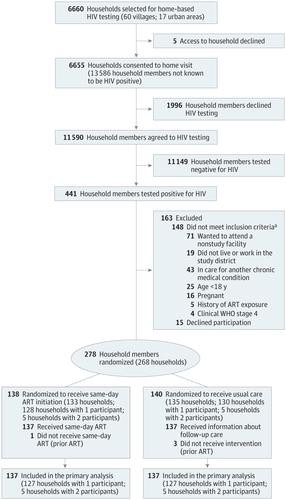Academy of Management Annals ( IF 14.3 ) Pub Date : 2018-05-07 13:35:18 , DOI: 10.1001/jama.2018.1156 Mary E Cogswell 1 , Catherine M Loria 2 , Ana L Terry 3 , Lixia Zhao 1, 4 , Chia-Yih Wang 3 , Te-Ching Chen 3 , Jacqueline D Wright 2 , Christine M Pfeiffer 5 , Robert Merritt 1 , Claudia S Moy 6 , Lawrence J Appel 7, 8

|
ImportanceIn 2010, the Institute of Medicine (now the National Academy of Medicine) recommended collecting 24-hour urine to estimate US sodium intake because previous studies indicated 90% of sodium consumed was excreted in urine.
ObjectiveTo estimate mean population sodium intake and describe urinary potassium excretion among US adults.
Design, Setting, and ParticipantsIn a nationally representative cross-sectional survey of the US noninstitutionalized population, 827 of 1103 (75%) randomly selected, nonpregnant participants aged 20 to 69 years in the examination component of the National Health and Nutrition Examination Survey (NHANES) collected at least one 24-hour urine specimen in 2014. The overall survey response rate for the 24-hour urine collection was approximately 50% (75% [24-hour urine component response rate] × 66% [examination component response rate]).
Exposures24-hour collection of urine.
Main Outcomes and MeasuresMean 24-hour urinary sodium and potassium excretion. Weighted national estimates of demographic and health characteristics and mean electrolyte excretion accounting for the complex survey design, selection probabilities, and nonresponse.
ResultsThe study sample (n = 827) represented a population of whom 48.8% were men; 63.7% were non-Hispanic white, 15.8% Hispanic, 11.9% non-Hispanic black, and 5.6% non-Hispanic Asian; 43.5% had hypertension (according to 2017 hypertension guidelines); and 10.0% reported a diagnosis of diabetes. Overall mean 24-hour urinary sodium excretion was 3608 mg (95% CI, 3414-3803). The overall median was 3320 mg (interquartile range, 2308-4524). In secondary analyses by sex, mean sodium excretion was 4205 mg (95% CI, 3959-4452) in men (n = 421) and 3039 mg (95% CI, 2844-3234) in women (n = 406). By age group, mean sodium excretion was 3699 mg (95% CI, 3449-3949) in adults aged 20 to 44 years (n = 432) and 3507 mg (95% CI, 3266-3748) in adults aged 45 to 69 years (n = 395). Overall mean 24-hour urinary potassium excretion was 2155 mg (95% CI, 2030-2280); by sex, 2399 mg (95% CI, 2253-2545) in men and 1922 mg (95% CI, 1757-2086) in women; and by age, 1986 mg (95% CI, 1878-2094) in adults aged 20 to 44 years and 2343 mg (95% CI, 2151-2534) in adults aged 45 to 69 years.
Conclusions and RelevanceIn cross-sectional data from a 2014 sample of US adults, estimated mean sodium intake was 3608 mg per day. The findings provide a benchmark for future studies.
中文翻译:

美国成人 24 小时尿钠和钾排泄量估计值
重要性2010年,医学研究所(现为美国国家医学院)建议收集24小时尿液来估算美国人的钠摄入量,因为之前的研究表明90%的钠摄入量通过尿液排出。
客观的估算美国成年人的平均人群钠摄入量并描述尿钾排泄量。
设计、设置和参与者在一项针对美国非机构化人口的全国代表性横断面调查中,在国家健康和营养检查调查 (NHANES) 的检查部分中随机抽取的 1103 名 20 至 69 岁非怀孕参与者中,有 827 名 (75%) 收集了至少一项2014年24小时尿液样本。24小时尿液采集的总体调查应答率约为50%(75%[24小时尿液成分应答率]×66%[检查成分应答率])。
曝光24小时收集尿液。
主要成果和措施平均 24 小时尿钠和钾排泄量。对人口和健康特征以及平均电解质排泄的全国加权估计考虑了复杂的调查设计、选择概率和无答复。
结果研究样本 (n = 827) 代表的人群中 48.8% 是男性; 63.7% 为非西班牙裔白人,15.8% 为西班牙裔,11.9% 为非西班牙裔黑人,5.6% 为非西班牙裔亚裔; 43.5%患有高血压(根据2017年高血压指南); 10.0% 报告诊断为糖尿病。总体平均 24 小时尿钠排泄量为 3608 mg(95% CI,3414-3803)。总体中位数为 3320 mg(四分位数范围,2308-4524)。在按性别进行的二次分析中,男性 (n = 421) 的平均钠排泄量为 4205 mg (95% CI, 3959-4452),女性 (n = 406) 的平均钠排泄量为 3039 mg (95% CI, 2844-3234)。按年龄组划分,20 至 44 岁成人 (n = 432) 的平均钠排泄量为 3699 mg (95% CI, 3449-3949),45 至 69 岁成人的平均钠排泄量为 3507 mg (95% CI, 3266-3748) (n = 395)。总体平均 24 小时尿钾排泄量为 2155 mg(95% CI,2030-2280);按性别划分,男性为 2399 mg(95% CI,2253-2545),女性为 1922 mg(95% CI,1757-2086);按年龄划分,20至44岁成人为1986 mg(95% CI,1878-2094),45至69岁成人为2343 mg(95% CI,2151-2534)。
结论和相关性根据 2014 年美国成年人样本的横断面数据,估计平均钠摄入量为每天 3608 毫克。研究结果为未来的研究提供了基准。











































 京公网安备 11010802027423号
京公网安备 11010802027423号